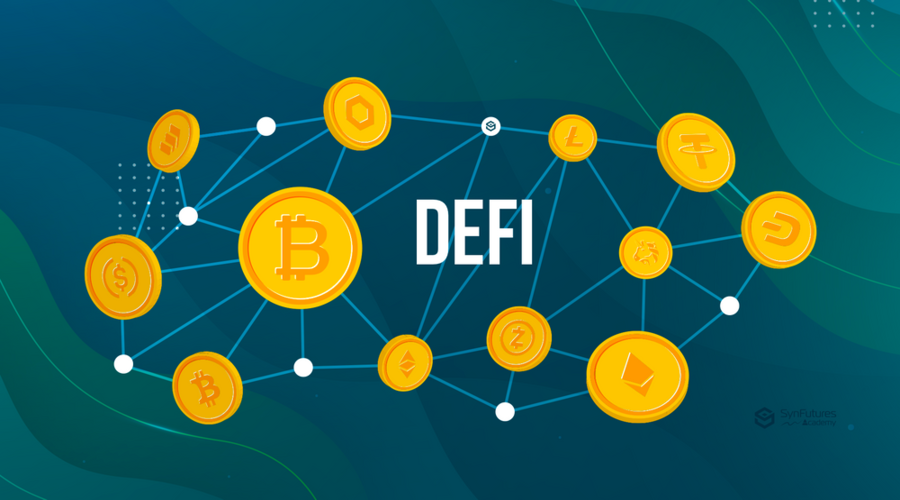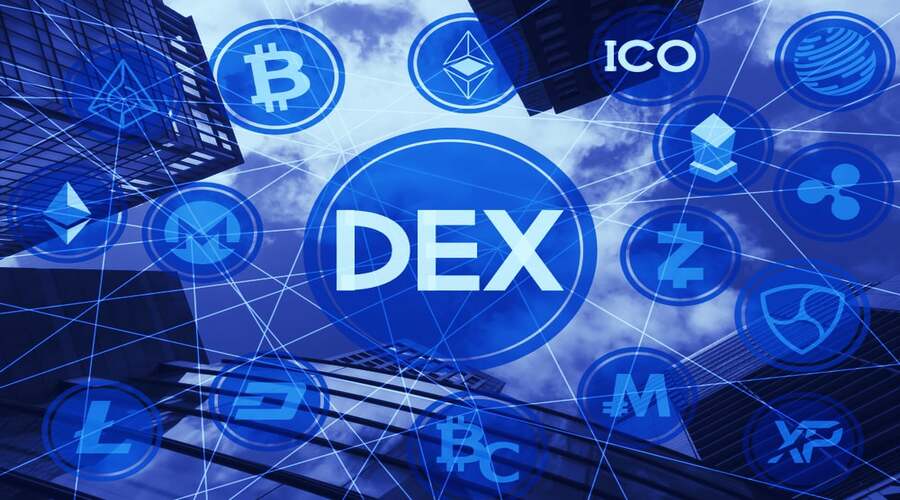Decentralized Finance (DeFi) protocols have emerged as a new and exciting investment opportunity for cryptocurrency investors. DeFi protocols provide access to financial services that were previously unavailable to the average investor. In this article, we will discuss the impact of DeFi protocols on investment strategies and explore some of the benefits and risks associated with investing in DeFi.
Introduction to DeFi
DeFi is built on blockchain technology. DeFi protocols are decentralized, open-source, and operate on smart contracts. DeFi protocols offer a wide range of financial services, including lending, borrowing, trading, and yield farming. DeFi protocols have become increasingly popular over the last few years, with the total value locked in DeFi protocols exceeding $100 billion.
Benefits of Investing in DeFi
Investing in DeFi protocols offers several benefits over traditional investment opportunities, including:
Access to New Investment Opportunities
DeFi protocols provide access to financial services that were previously unavailable to the average investor. Investors can earn interest on their cryptocurrency holdings, lend and borrow cryptocurrencies, and trade cryptocurrencies on decentralized exchanges.
High Returns
Investing in DeFi protocols can provide high returns for investors. Yield far
Transparency and Security
ming, for example, allows investors to earn high returns on their cryptocurrency holdings by providing liquidity to DeFi protocols.
DeFi protocols are transparent and secure, as they operate on decentralized networks and use smart contracts to execute transactions automatically. This provides a level of transparency and security that is not available in traditional finance systems.
Risks of Investing in DeFi
Investing in DeFi protocols also comes with some risks, including:
Smart Contract Vulnerabilities
DeFi protocols operate on smart contracts, which are vulnerable to bugs, hacks, and other vulnerabilities that can lead to the loss of funds.
Market Volatility
The cryptocurrency market is highly volatile, and investing in DeFi protocols can be risky due to the fluctuations in cryptocurrency prices.
Regulatory Challenges
The lack of clear regulatory guidance for DeFi protocols poses a risk to investors. Regulators are struggling to keep up with the rapid pace of innovation in DeFi, and there is a risk that overregulation could stifle innovation.
Impact of DeFi on Investment Strategies
DeFi protocols have the potential to disrupt traditional investment strategies by providing new investment opportunities and changing the way investors approach risk management. Some of the ways that DeFi is impacting investment strategies include:
Diversification
Investing in DeFi protocols allows investors to diversify their portfolios and reduce their exposure to traditional finance systems.
Risk Management
DeFi protocols provide new risk management tools that allow investors to hedge against market volatility and manage their risk exposure.
Decentralization
DeFi protocols operate on decentralized networks, which provide a level of decentralization and autonomy that is not available in traditional finance systems. This can have a significant impact on investment strategies and the way investors approach risk management.
DeFi vs Traditional Finance
DeFi protocols are often compared to traditional finance systems, and there are some key differences between the two. One of the main differences is that DeFi operates on decentralized networks, while traditional finance systems are centralized. This provides a level of transparency and security that is not available in traditional finance systems. DeFi protocols also offer new investment opportunities and are accessible to anyone with an internet connection.
DeFi Investment Strategies
Investing in DeFi protocols requires a different approach than investing in traditional finance systems. Some of the strategies that investors can use when investing in DeFi protocols include:
Yield Farming
Yield farming is a popular investment strategy in DeFi that involves providing liquidity to DeFi protocols and earning rewards in the form of cryptocurrencies. Yield farming can provide high returns for investors but also comes with some risks, including smart contract vulnerabilities and market volatility.
Staking
Staking is another popular investment strategy in DeFi that involves holding cryptocurrencies in a wallet or on a platform and earning rewards for validating transactions on the network. Staking can provide a steady stream of income for investors but also comes with some risks, including market volatility and smart contract vulnerabilities.
Index Funds
Index funds are a popular investment strategy in traditional finance systems, and they are also becoming popular in DeFi. DeFi index funds allow investors to diversify their portfolios and invest in multiple DeFi protocols with a single investment.
DeFi and Institutional Investors
DeFi is attracting the attention of institutional investors, such as hedge funds and asset managers. Institutional investors are interested in DeFi because it offers new investment opportunities and provides a level of transparency and security that is not available in traditional finance systems. However, regulatory challenges and market volatility are still a concern for institutional investors.
DeFi and Decentralization
Decentralization is a key feature of DeFi protocols, and it provides several benefits over centralized finance systems. Decentralization means that DeFi protocols operate on a network of nodes that are spread out around the world, making it more difficult for a single entity to control the system. Decentralization also provides a level of transparency and security that is not available in centralized finance systems.
DeFi and Cross-Chain Interoperability
Interoperability refers to the ability of different blockchain networks to communicate and exchange data with each other. Cross-chain interoperability is becoming increasingly important in DeFi, as it allows users to move their assets between different DeFi protocols and networks. Cross-chain interoperability also allows for the creation of more complex financial services and increases the liquidity of the DeFi ecosystem.
DeFi and Social Impact
DeFi has the potential to have a significant social impact by providing financial services to underserved communities and promoting financial inclusion. DeFi protocols can provide access to financial services for people who are unbanked or underbanked, as all that is required is an internet connection and a cryptocurrency wallet. DeFi protocols can also provide loans and other financial services to small businesses and startups that may not have access to traditional finance systems.
DeFi and Environmental Impact
DeFi protocols operate on blockchain networks that use a significant amount of energy to validate transactions. This has raised concerns about the environmental impact of DeFi and cryptocurrency in general. However, some DeFi protocols are exploring more sustainable and environmentally friendly alternatives, such as proof-of-stake consensus algorithms.
Conclusion
DeFi protocols have emerged as a new and exciting investment opportunity for cryptocurrency investors. Investing in DeFi protocols offers several benefits over traditional investment opportunities, including access to new investment opportunities, high returns, and transparency and security. However, investing in DeFi protocols also comes with some risks, including smart contract vulnerabilities, market volatility, and regulatory challenges. DeFi is also impacting investment strategies by providing new diversification and risk management tools and changing the way investors approach risk management. As DeFi continues to evolve, it will be important for investors to carefully consider the benefits and risks associated with investing in DeFi protocols.




